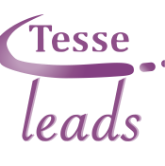When standards are unclear or unenforced; it is easy for individuals to feel emboldened to engage in questionable behaviours that are readily rationalised. Environments, cultural expectations, processes and procedures that nudge individuals in the right direction, and leaders who immediately identify and address problems can stop breaches and encourage good, healthy behaviours. Nudges can offer a different take on many hot-button issues, as well as shape the culture of a governing body. This is where codes of conduct can play a role.
Codes of conduct are a set of written policies formulated by the board to specify how the board handles key issues, to set out expectations from board members, to articulate the behaviours the board intends to see, clarify board activities and to deal with practical issues such as board expectations, conflicts of interest, confidentiality, whistle blowing and so on. Every organisation has its own special needs, but many organisations have found codes to be of particular value.
Such Codes bring with them several advantages. Specifically they :
• Provide a way to clarify fuzzy areas of board accountability and board operations.
• Show the willingness of boards to regulate themselves
• Can lead to more effective engagement and cut down on wasted times in board meetings.
• Can provide a reference point for all board members regarding how a given issue is dealt with
• Can help new board members and chairs get quickly up to speed with basic board/committee procedures.
• Can clarify board activities.
• Can be useful tools for evaluating board effectiveness during the review process and promote sound ethical behaviour.
Conclusion
Codes of Conduct offer a way for boards to rationalise some of their most vital activities. At the same time, the detailed discussions boards have while shaping their code, forced the board to come to grips with its leadership role in the organisation and find ways of fulfilling the governance role more effectively.
